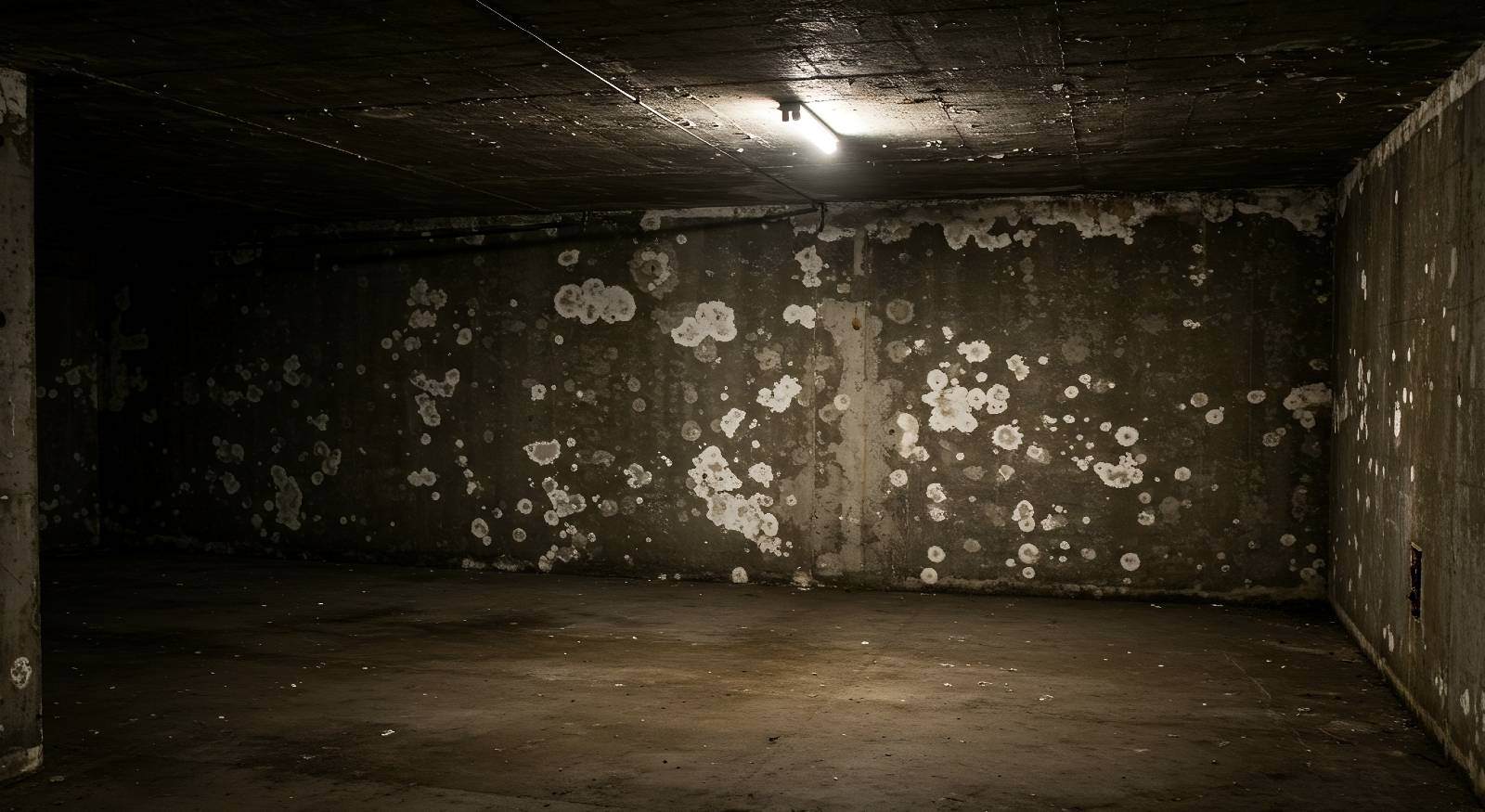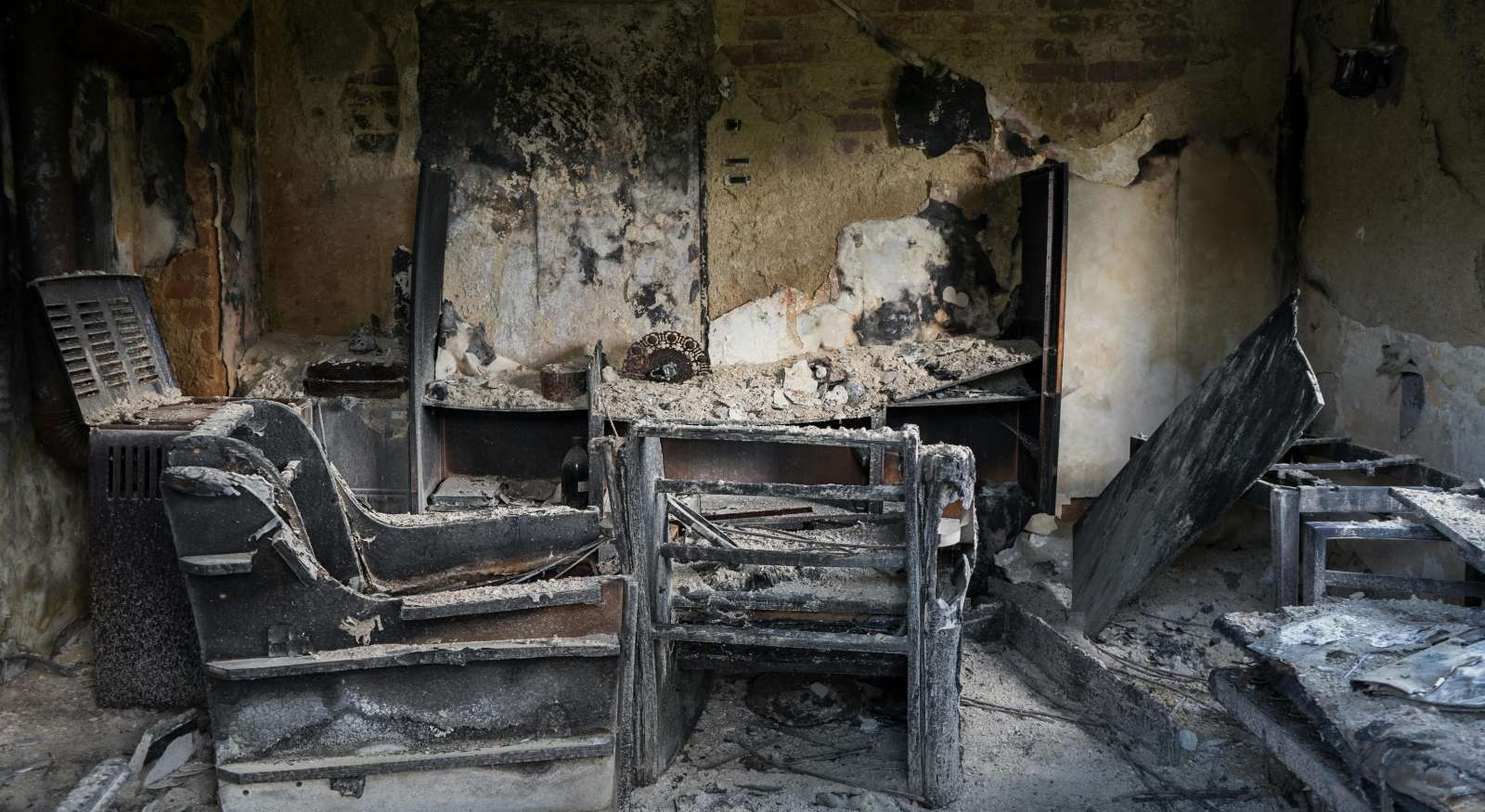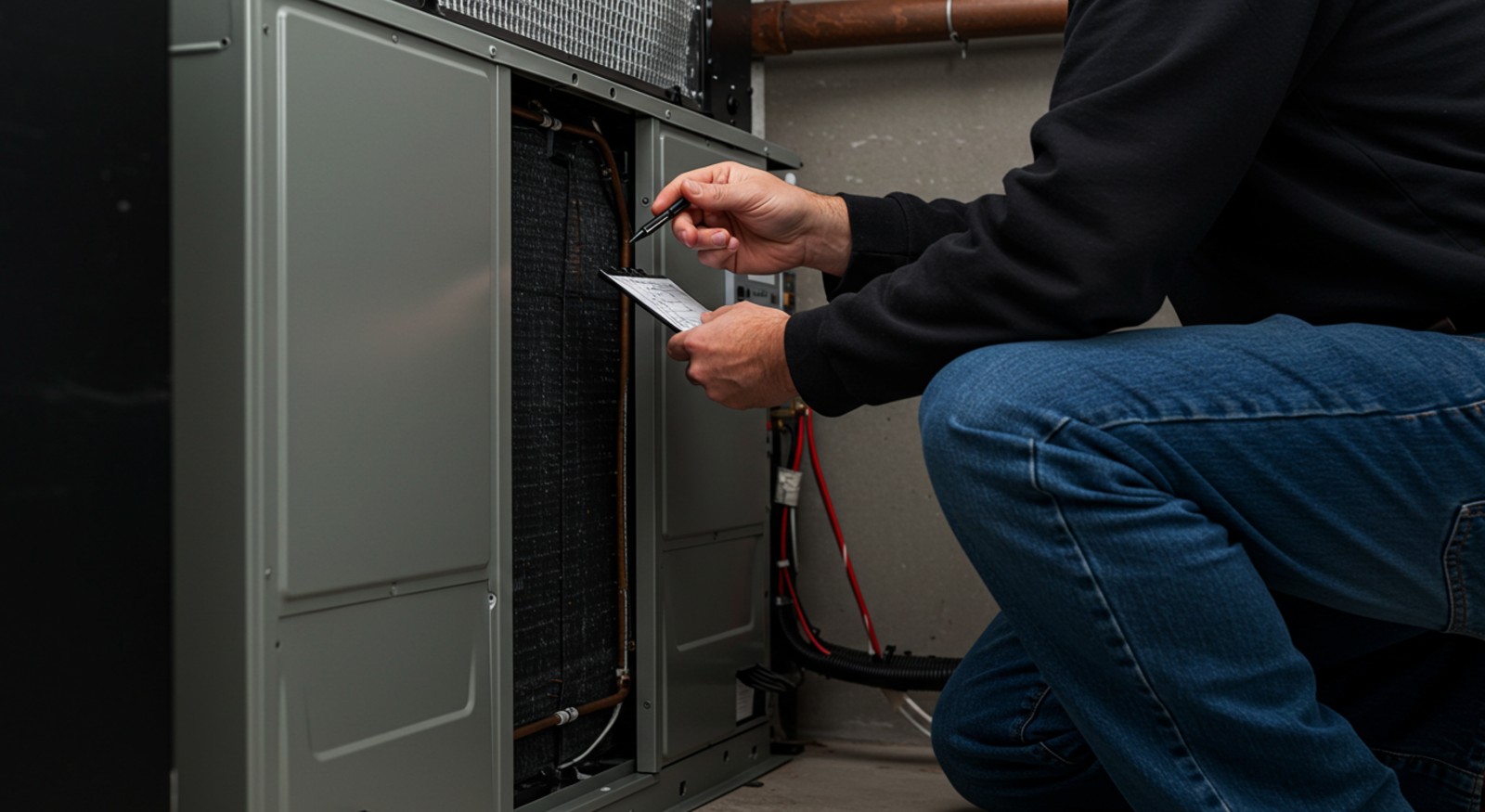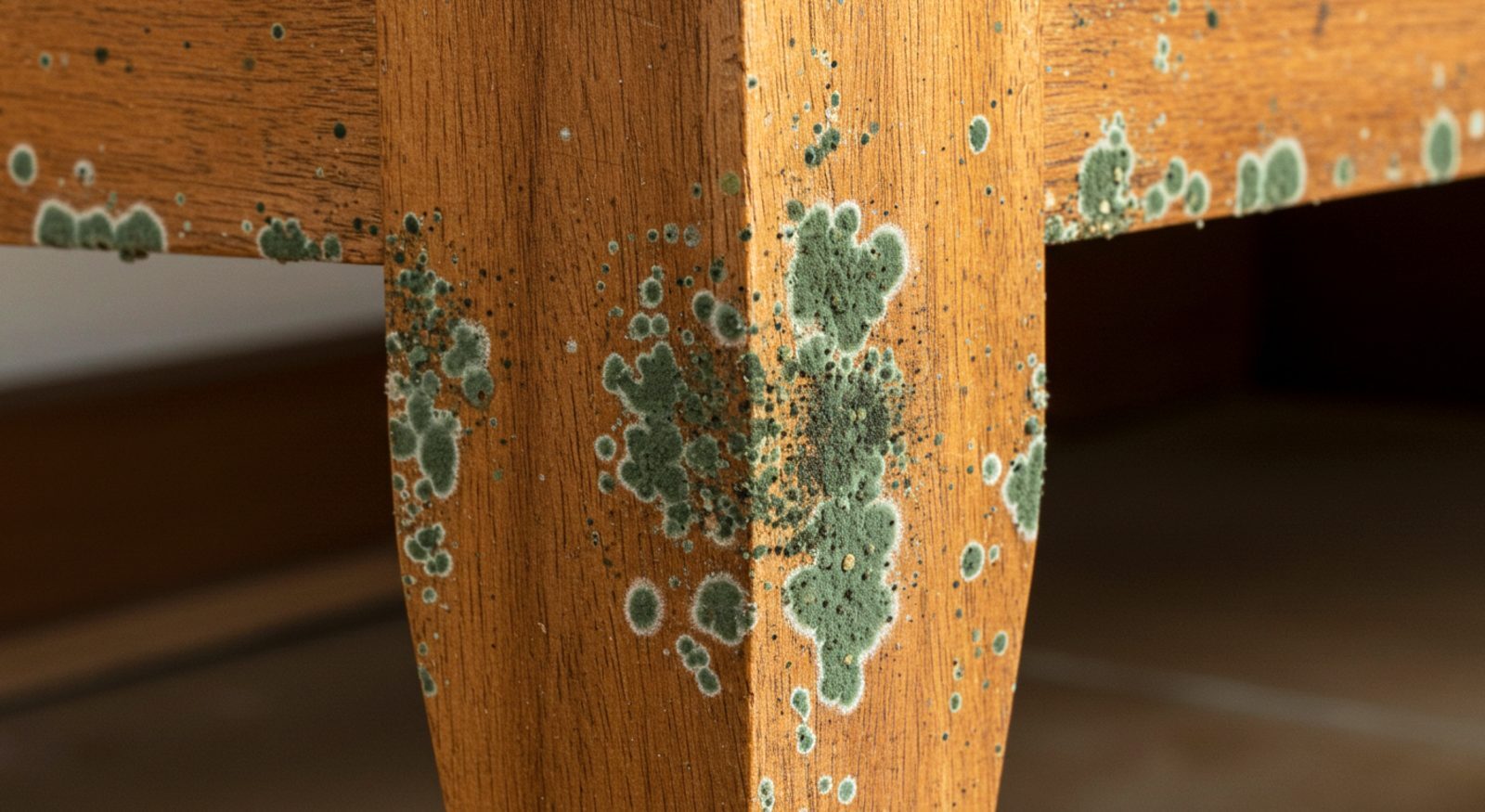Follow This Guide to Keep Mold Out of Your Basement
August 25th, 2025
4 min read

If the idea of having your basement overrun by mold sends shivers down your spine, we've got you. You don't have to wait until you have a musty smell or see mold spots in your basement to take action.
With our humid climate and the occasional flooding, South Arkansas presents some unique challenges for homeowners, which is why Restore-It is here. Having worked with hundreds of neighbors in El Dorado, we will teach you how to safeguard your basement from mold.
In this article, you will learn why basements can be a target for mold. We will discuss key prevention strategies and more. So, join us and learn how to take action now so that you can breathe easier later.
Why Mold Loves Basements
The United States Environmental Protection Agency (EPA) reminds us that mold is a natural part of the environment, helping to break down organic matter into simpler components. However, it can also grow indoors, provided there are the right conditions, such as humidity and organic matter. Basements, being below ground level, can be particularly susceptible to mold growth.
- Groundwater: Water naturally seeks the lowest point, and for many homes, that's the basement. Groundwater can seep through foundation walls and floors, especially after heavy rains or during periods of high water tables.
- Condensation: During warmer months, warm, humid air can enter your basement and come into contact with cooler surfaces, such as concrete walls and floors. This temperature difference causes condensation, leaving behind moisture.
- Poor Ventilation: Basements often suffer from poor air circulation. This trapped, moist air creates a stagnant environment where mold spores can settle and thrive without being dried out.
- Hidden Leaks: Leaky pipes, even small drips from plumbing or appliances located in or near the basement, can introduce a steady supply of moisture that fuels mold growth, often behind walls or in less visible areas. Plus, they are harder to detect, as people usually don't go to their basements every day.
Key Strategies to Prevent Basement Mold
Does this mean your basement is destined to be overrun by mold? Not necessarily! While most basements can present the right conditions for mold growth, you can prevent it by taking a proactive approach. Let's take a look at this checklist so you can keep that mold away from your basement.
☐ Fix the Leaks
Address any plumbing leaks or foundation cracks as soon as possible. Even a small, persistent drip can create a big mold problem over time. Call a plumber and ensure the origin of the leakage is addressed.
☐ Improve Drainage Outside
Ensure the ground around your foundation slopes away from your house. This helps direct rainwater away from the basement walls. Clean gutters and downspouts are also very important for proper water runoff.
☐ Control Indoor Humidity
Use a dehumidifier, especially during humid months, to keep the air in your basement dry. Aim for a humidity level between 30% and 50%. You can use a hygrometer to monitor this; they are fairly cheap and can be found in most hardware stores.
☐ Improve Ventilation
Increase airflow in your basement. Open windows when the weather is dry, and consider using fans to circulate air. For more consistent airflow, consider installing a mechanical ventilation system.
☐ Install a Vapor Barrier
A high-quality vapor barrier on the walls can be the solution to your basement problems. This thick plastic sheeting prevents moisture from evaporating from the ground and seeping through the concrete. For a better result, consider hiring an expert and make sure they seal all seams and edges.
☐ Insulate the Walls
Proper basement wall insulation can also help. This will regulate temperature and reduce condensation on the cool concrete surfaces. Opt for moisture-resistant insulation materials.
☐ Use Mold-Resistant Materials
When finishing or renovating your basement, consider using mold-resistant drywall, paint, and flooring options. These materials are less susceptible to mold growth.
Extra Steps You Can Take to Prevent Mold Growth
While some of the strategies mentioned above may require professional help, you can take steps to mitigate conditions that favor mold growth.
- Regular Inspections: Make it a habit to regularly inspect your basement for any signs of moisture, leaks, or mold growth. Early detection is key.
- Prompt Cleanup: If you do experience a small water spill or condensation buildup, clean and dry the area immediately and thoroughly.
- Smart Storage: Store items off the floor and away from walls to allow for better air circulation and prevent moisture from getting trapped. Use plastic bins instead of cardboard boxes in damp basements.
- Avoid Carpets: Carpets and rugs can trap moisture and are prone to mold growth in humid basements. If moisture is a concern, consider opting for hard flooring, such as tile or concrete.
Key Signs You Need to Call the Pros
Tackling basement humidity on your own and preventing mold is a significant first step. However, to truly ensure moisture levels are under control, you should call in the experts.
1. Existing Mold Issues
If you already have significant mold growth in your basement – we're talking patches bigger than 10 square feet or over 3 square feet by 3 square feet – it's best to call a professional mold remediation company. Large mold problems often mean there's a serious underlying moisture issue, and trying to clean it yourself can actually make things worse by spreading spores. Plus, professionals have the right tools and know-how to handle it safely and effectively.
2. Persistent Moisture Issues
Sometimes, no matter how much you dehumidify or open windows, your basement just stays damp. It can be challenging to figure out where the water is coming from. Maybe it's seeping through the foundation, or there's a sneaky leak you just can't find. For these scenarios, a waterproofing specialist can be a lifesaver. Professionals can recommend personalized solutions, such as drainage systems or foundation sealing, to keep your basement dry.
3. Health Concerns
If you or anyone in your family starts experiencing health issues that you think might be related to mold in your basement, such as persistent coughing, sneezing, or worsening allergies, it's really important to minimize any further exposure. Professional assessment and remediation are recommended in these situations. They can make sure the mold is removed safely and thoroughly, helping to improve your indoor air quality and protect your family's health.
Mold Concerns? Contact Restore-It
Everyone wants to keep mold out of their homes. Given that basements tend to create the conditions for mold growth, most homeowners want to be extra sure they don't become a gateway for mold indoors. Now that you've learned from Restore-It how to prevent this scenario, you should have some peace of mind. Should you find signs of mold growth in your basement or other areas of your home, contact Restore-It. As professionals in mold remediation, we can provide you with expert advice and solutions to address any mold issues you may have. Together, we can ensure your basement remains a healthy and usable space for years to come.
Topics:















